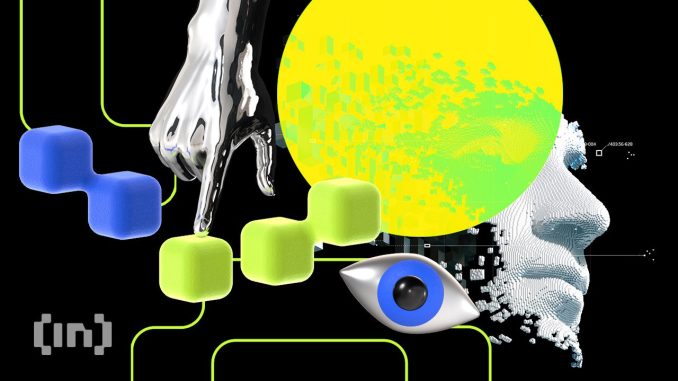
A chilling question looms: Could AI and deepfakes destroy democracy? With the 2024 US presidential election on the horizon, this query takes on a newfound urgency. Experts are increasingly concerned about the potential ramifications of deepfake technology on the democratic process.
As the race for the White House heats up, the roles of technology giants, innovative solutions, and vigilant citizens are more critical than ever.
The Assault on Democracy: Deepfakes at the Helm
In recent years, democracy has faced mounting challenges. AI-generated deepfakes, a disturbing new phenomenon, further complicate the landscape. These forgeries, crafted using machine learning techniques, blur the line between fact and fiction, eroding public trust in recorded images and videos. With increasingly sophisticated algorithms, it becomes nearly impossible to distinguish genuine content from malicious fabrications.
As a result, deepfakes can easily manipulate public opinion and influence elections, undermining the very foundations of democracy.
For instance, during the 2020 US elections, a deepfake video circulated, falsely depicting a candidate making controversial statements. While the video was eventually debunked, the damage had been done—its viral spread sowed discord and confusion among voters.
Tech Giants’ Role: A Call to Action
The responsibility to address this issue falls not only on policymakers but also on tech giants. Bold, proactive steps must be taken, including stronger quality controls and a rethinking of the safety net surrounding online content. Tech companies must invest in advanced detection algorithms and work closely with independent fact-checkers to identify and remove misleading deepfakes in a timely manner.
In response to the growing threat, companies like Meta and Google have launched initiatives to counter deepfakes. Meta’s Deepfake Detection Challenge and Google’s Deepfake Detection Dataset aim to foster collaboration among researchers and developers in creating tools to detect manipulated content.
Safeguarding the Truth: Fighting Deepfakes
The key to protecting our elections lies in innovative solutions. One approach is to adopt blockchain technology, which offers transparency and security. Another strategy involves embracing a Zero Trust model, whitelisting content rather than relying on blacklisting.
Blockchain technology, known for its decentralized and tamper-proof nature, could play a pivotal role in thwarting deepfake threats. By creating a transparent and secure digital ledger, blockchain can verify the authenticity of images and videos, fostering trust in online content.
For example, a startup called Provenance aims to use blockchain to create a “chain of custody” for digital media. This process enables users to trace content back to its original source, circulating only verified and authentic material. This technology can help prevent deepfakes from spreading unchecked and restore public confidence in digital content.
Zero Trust: A New Paradigm for Content Security
The Zero Trust approach, a paradigm shift in digital content security, focuses on the principle of “never trust, always verify.” This method promotes whitelisting content instead of blacklisting, ensuring the dissemination of only verified, authentic content.
By promoting a more cautious approach to content consumption, the Zero Trust model can help mitigate the risks posed by deepfakes.
In practice, this could mean implementing strict content verification processes, with multiple layers of authentication required before content is shared on social media platforms. By adopting this stringent approach, the spread of deepfakes can be curtailed, and users can be confident that the content they consume is genuine.
The Future of Democracy: A Call for Vigilance
The potential impact of AI-generated deepfakes on democracy, as the 2024 US presidential election approaches, cannot be ignored. The onus is on policymakers, tech giants, and society at large to remain vigilant and invest in solutions that will protect the integrity of our electoral process. Only then can we safeguard democracy from the insidious threat of deepfakes.
Governments must also take action by enacting legislation to counter the spread of deepfakes. For instance, the United States passed the Deepfake Report Act in 2019, which directs the Department of Homeland Security to assess the potential dangers posed by deepfakes and explore ways to combat them. Countries like the United Kingdom and Australia have proposed similar legislation.
However, striking the right balance between freedom of expression and preventing the malicious use of deepfakes remains a challenge. Policymakers must ensure that any legislative action does not stifle creativity or hinder legitimate uses of AI technology.
Education and Awareness: The Role of the Public
In the fight against deepfakes, the public plays an essential role. This education should involve teaching critical thinking skills, promoting media literacy, and encouraging skepticism when consuming digital content.
Social media platforms can contribute by prominently displaying fact-checking labels on potentially manipulated content. And provide users with easy access to reliable information.
Additionally, public awareness campaigns led by governments, NGOs, and educational institutions can help people understand the risks associated with deepfakes. And the importance of verifying content before sharing it.
A United Front for Democracy
The threat of AI-generated deepfakes to democracy is real and growing. As the 2024 US presidential election approaches, the need for proactive measures to combat this menace is more pressing than ever. Tech giants, governments, and the public must collaborate, using innovative solutions like blockchain and Zero Trust, to safeguard democracy.
By adopting a united front, we can counter the deepfake challenge, ensuring that our elections remain fair, transparent, and free from manipulation. In doing so, we will uphold the sanctity of democracy and preserve the trust that is essential to its survival.
Disclaimer
Following the Trust Project guidelines, this feature article presents opinions and perspectives from industry experts or individuals. BeInCrypto is dedicated to transparent reporting, but the views expressed in this article do not necessarily reflect those of BeInCrypto or its staff. Readers should verify information independently and consult with a professional before making decisions based on this content.





Be the first to comment